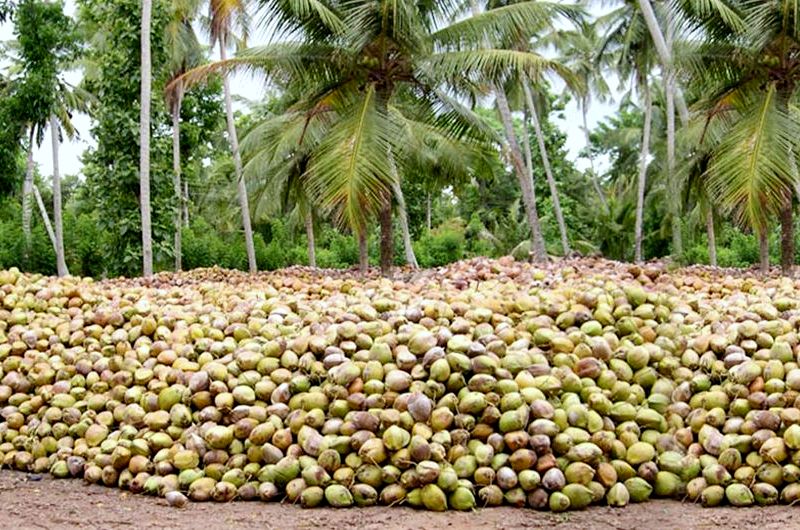US tariff blow puts Sri Lanka’s coconut export industry at risk

The Ceylon Chamber of Coconut Industry (CCCI) made an urgent request to the government yesterday following the US decision to impose a 30 percent import tariff on coconut products from Sri Lanka, starting August 1, 2025, as more than US $ 857 million in yearly revenue is threatened.
This move poses a risk of disrupting one of the nation’s most significant export industries, which presently produces more than US $ 857 million in yearly income and endangers numerous rural livelihoods.
“The US is Sri Lanka’s single largest buyer of coconut-based products, accounting for more than 20 percent of the sector’s exports, valued at roughly US$160 million each year. So, the new tariff all but destroys Sri Lanka’s price competitiveness in the US market,” said the CCCI.
“Competing suppliers such as the Philippines, Vietnam, and India enjoy preferential trade access, meaning Sri Lankan products, despite their globally renowned quality, will be sidelined on cost alone. “This isn’t just a policy shift. It’s a devastating blow to an entire industry that Sri Lanka has worked hard to build,” said CCCI Chairman Jayantha Samarakoon.
Further, he explained, “Our products are recognised globally for their purity, taste and nutritional value. But no matter how good they are, a 30 percent tariff makes them unaffordable for buyers. We will be priced out of the market, not because of quality but because of cost. While we acknowledge the reduction from the originally proposed 44 percent, even at 30 percent, the impact remains deeply damaging to our export competitiveness and to the hundreds of thousands of rural livelihoods tied to this industry.”
The export basket at risk encompasses various value-added products: desiccated coconut, refined and virgin coconut oil, coconut cream and milk, coconut water, coir fiber items, activated carbon, and growing media made from husks. Numerous items in this category are high-end niche exports that Sri Lanka innovated in the international market, but purchasers will now have to move their sourcing to more affordable locations.
The CCCI shows, “the impact, however, goes far beyond trade statistics. Over 800,000 Sri Lankans depend on the coconut industry for their livelihoods, including smallholder farmers, processors, factory workers, logistics providers, and exporters. More than 150,000 direct jobs in the manufacturing and processing sectors are now under immediate threat. A sudden drop in export demand could flood the domestic market with unsold produce, pushing down farm gate prices and cutting off income streams for rural families already grappling with inflation and rising production costs.”
The CCCI additionally cautions about wider economic repercussions, as stated in the information. A decline in coconut exports may lead to a fall in investor confidence and foreign direct investment, especially as Sri Lanka strives to establish itself as a dependable, competitive sourcing location through its current International Monetary Fund reform initiative.
As other coconut-producing nations provide better policy backing and more affordable cost structures, there is a genuine threat of local manufacturers relocating overseas, carrying jobs, investment, and prospects along.






